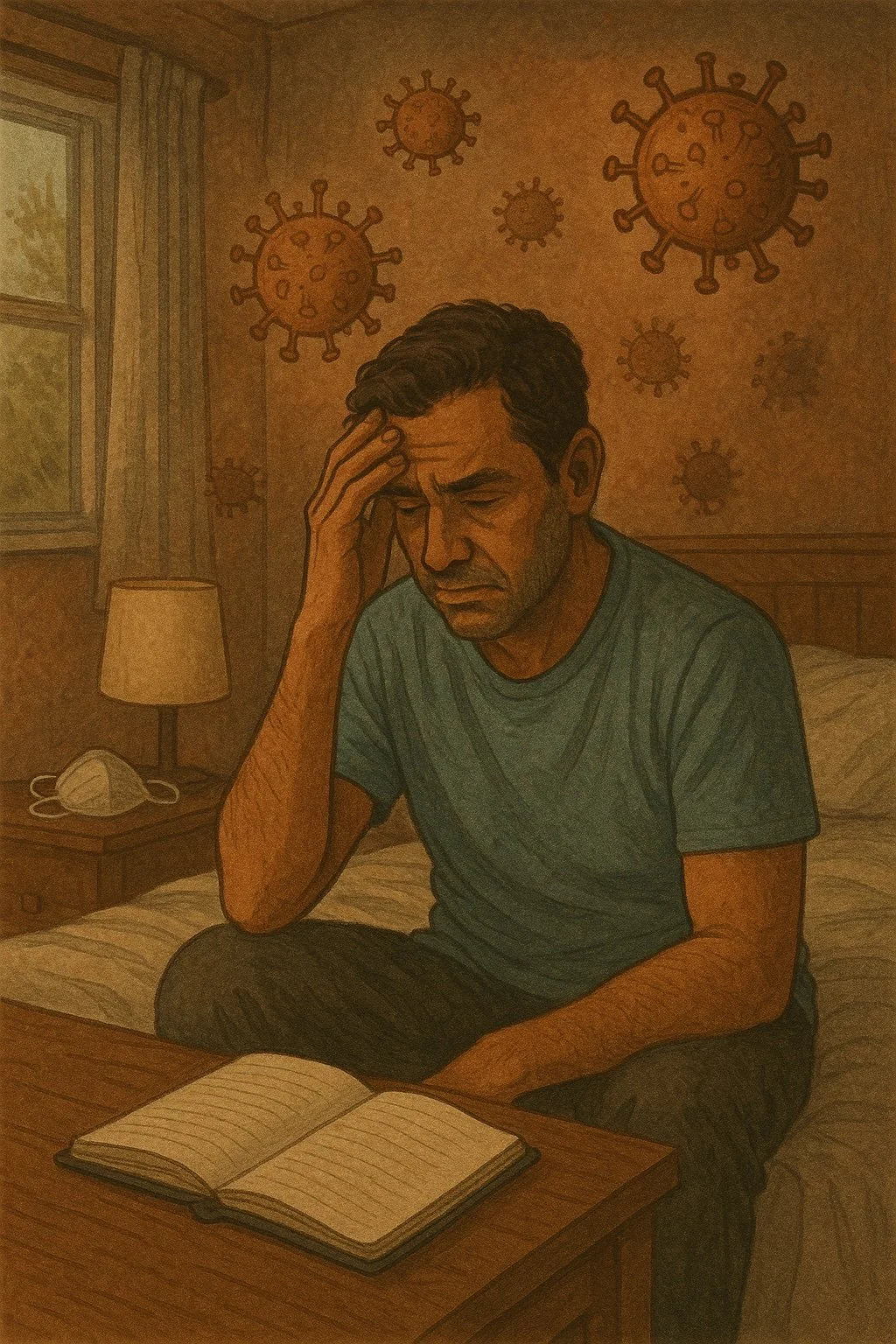CHAPTER 13
Midlife Crisis: COVID Edition
It started like a whisper—news of a new virus in some far-off corner of the world. Cliff brushed it off, thinking, “Just another bad flu. A few people will get sick, maybe a few will die, and then it’ll be over before it even makes it out of the East.” Well, that was a nice thought while it lasted. Before he knew it, the virus was practically knocking on his front door, and the world as he knew it flipped upside down. One minute, he was planning his next run, and the next, he was staring at the TV, trying to make sense of the word “lockdown.”
The panic hit like a tidal wave. Suddenly, everyone was talking about COVID, from the grocery store clerk to the guy who always seemed to have a conspiracy theory ready to go. In his medical circles, conversations were grim—death tolls, ICU capacities, ventilator shortages. Meanwhile, in the non-medical world, people were up in arms about wearing masks and running out of toilet paper. It was like living in two different realities. While Cliff and his colleagues were suiting up for battle, others were debating whether the whole thing was just a hoax. Cliff couldn’t help but roll his eyes whenever someone compared COVID to “just a flu.”
Then came the administrative bombshell: Cliff was reassigned to a remote institution, one that was teetering on the edge of collapse and desperately needed his expertise. The commute alone was something out of a post-apocalyptic movie—empty streets, ghost towns, and the occasional security roadblock that made him feel like he was sneaking into a war zone. Every day, he donned the same protective suit that made him look like a straight out of a sci-fi movie, and he dove into the chaos of a hospital overrun with very sick COVID patients. There was no backup, no one to share the load. Just him, doing his best to save a few lives while watching too many others slip away.
At home, life was even more surreal. Cliff isolated himself in the guest suite, turning it into his own personal quarantine zone. FaceTime became his lifeline to his wife, daughters, and his mom. Every meal arrived in disposable plates, which he tossed out without a second thought. He became a master of hygiene rituals—changing clothes three times a day, sanitizing his hands at every possible moment, and carefully avoiding any contact with the rest of the house. He was like a one-man hazmat team, and the routine was as exhausting as it was necessary.
The scientific community had never seen anything like it—conferences, meetings, all dedicated to one disease, all conducted through video calls. Cliff found himself attending more webinars than he could count, the monotony broken only by the occasional tech glitch that left him talking to a frozen screen. He’d joke with his colleagues about how they were now starring in their own little dystopian reality show, but underneath the humor, the stress was relentless.
Despite being labeled a hero by some, Cliff didn’t feel heroic. He felt more like a soldier on the front lines, doing his duty because that’s what was required. There was no time to overthink it, no room for fear or self-pity. Just keep moving forward, one step at a time, like he was running a marathon that had no finish line.
But then, after what felt like an eternity, the storm began to calm. The units started emptying out, the daily death tolls dropped, and one day, Cliff was told he could go back to his original job. It was like being told he could finally leave the battlefield and return to civilian life, but the transition wasn’t as smooth as he’d hoped.
The first few days back felt eerily quiet. No more alarms blaring, no more frantic calls for help. He should’ve felt relief, but instead, a strange emptiness crept in. “I should be happy,” he thought. “I survived COVID, my family is safe, and life is starting to look normal again. So why do I feel like this?”
He tried to shake off the feeling by getting back into old routines. He laced up his running shoes and hit the pavement, feeling the familiar burn in his muscles. He hugged his daughters tightly, savoring the warmth and normalcy of their embrace. He even started helping with their online schooling, though he quickly discovered that high-school math was a skill he left behind long ago.
Something was missing. The joy he expected to feel just wasn’t there. It was as if the adrenaline that had kept him going for months had drained away, leaving him deflated. Cliff couldn’t put his finger on it, but he knew one thing for sure—normal didn’t feel normal anymore.

